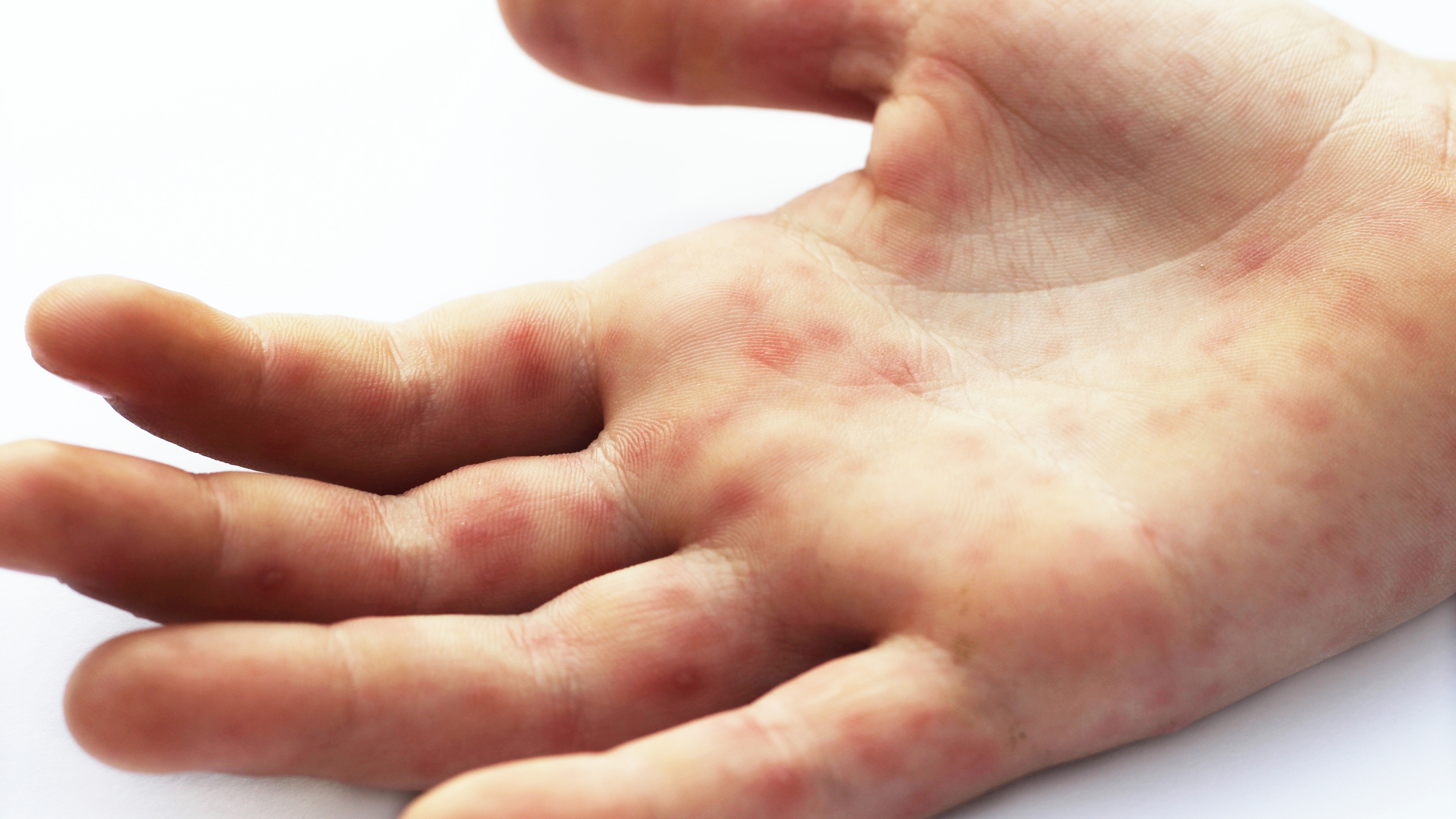 Hand, foot and mouth disease is a highly contagious childhood illness that commonly affects kids ages 5 or under. However, anyone can become sickened – especially those residing in close living environments, such as college campuses. Hand, foot and mouth disease is most commonly caused by a Coxsackievirus and, in the U.S., most outbreaks occur in summer or fall months.
Hand, foot and mouth disease is a highly contagious childhood illness that commonly affects kids ages 5 or under. However, anyone can become sickened – especially those residing in close living environments, such as college campuses. Hand, foot and mouth disease is most commonly caused by a Coxsackievirus and, in the U.S., most outbreaks occur in summer or fall months.
"Hand, foot and mouth disease is usually a viral infection in young children. Initially, they have fevers followed by sores on their hands, feet and mouths, which can sometimes be painful," says Dr. Pritish Tosh, a Mayo Clinic infectious diseases specialist. Some people, especially adults can pass the virus without showing any signs or symptoms of the disease.
Watch: Dr. Pritish Tosh discusses hand, foot and mouth disease.
Journalists: Broadcast-quality sound bites with Dr. Tosh are in the downloads at the end of the post. Please ‘Courtesy: Mayo Clinic News Network.’
Most people who become infected get better. Rarely do those sickened with hand, foot and mouth disease require hospitalization. Dr. Tosh says hand, foot and mouth disease is self-limiting, meaning there are no medications to treat this infection.
"We do not have medicines for this disease," says Dr. Tosh. "Good, supportive care is essential, including ensuring patients have plenty of fluids." Dehydration is a common complication. The disease can cause sores in the mouth and throat, making swallowing painful and difficult.

The virus that usually causes hand, foot and mouth disease often is spread through saliva or contact with stool. It can spread by person-to-person contact with an infected person's nasal secretions or throat discharge, saliva, stool or respiratory droplets sprayed into the air after a cough or sneeze. It also can be spread through fluid from blisters.
"A day care setting or in a setting where there are children is a great breeding ground for an outbreak of hand, foot, and mouth disease," says Dr. Tosh. That's because the infection spreads by person-to-person contact, and young children are the most susceptible.
There is no vaccine to prevent hand, foot and mouth disease. Practicing good hand hygiene is one way to reduce the risk of contracting the viral illness.







